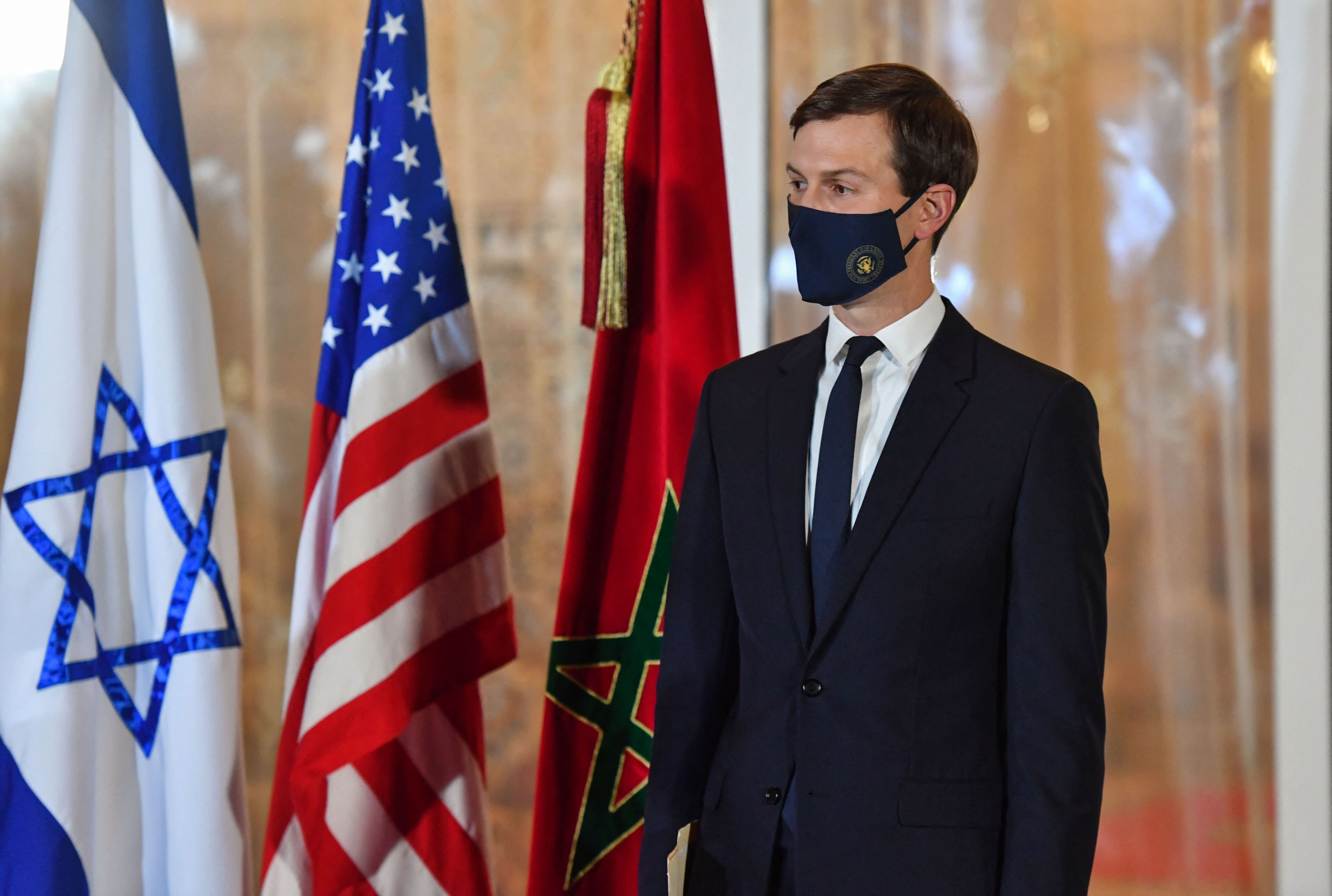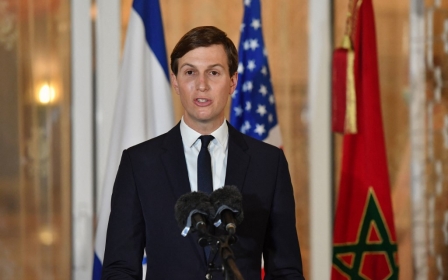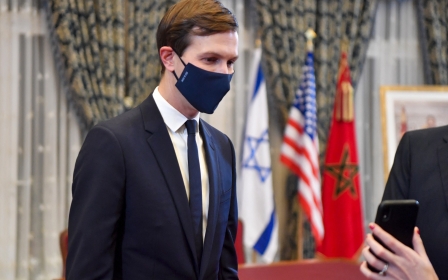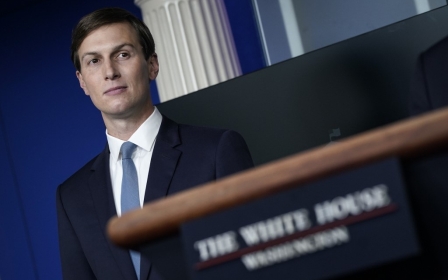Jared Kushner founds 'Abraham Accords Institute' to deepen Israeli normalisation: Report

Jared Kushner, Donald Trump's son-in-law who served as an adviser in the Trump administration, is founding an organisation named the Abraham Accords Institute for Peace, according to Axios, to cement normalisation deals between Israel and Arab countries.
The United Arab Emirates (UAE), Bahrain, Morocco and Sudan all recently signed the Abraham Accords, a US-brokered agreement to recognise Israel and normalise relations, negotiated - in part - by Kushner.
Kushner's organisation will have a five-year mandate and will be funded by private donors, according to Axios, which added that it would focus on boosting trade and tourism between the four Arab states and Israel.
It will also "provide analysis of the benefits of normalization and the potential benefits additional Arab countries can receive if they join the Abraham Accords", according to a statement seen by Axios.
Kushner is founding the institute with Avi Berkowitz, a Trump-era Middle East envoy and Kushner's deputy; Yousef al-Otaiba and Abdulla R al-Khalifa, the Emirati and Bahraini ambassadors to Washington; and Israeli foreign minister Gabi Ashkenazi, according to the article.
The executive director, Axios states, will be Robert Greenway, the senior Middle East adviser on Trump's national security council, who was also involved in negotiating the Abraham Accords.
'Last vestiges' of Arab-Israeli conflict
In a column published in the Wall Street Journal in March, Kushner wrote that normalisation between Saudi Arabia and Israel was "in sight", proclaiming that "we are witnessing the last vestiges of what has been known as the Arab-Israeli conflict".
Saudi Foreign Minister Faisal bin Farhan said during an April CNN interview that a normalisation deal with Israel would be "extremely helpful" and bring "tremendous benefits" to the Middle East, but said it couldn't happen without addressing "the issue of the Palestinians".
Saudi officials have repeatedly said the kingdom remained committed to the Arab Peace Initiative, which conditions recognising Israel on the establishment of an independent Palestinian state within the 1967 borders.
But Saudi Arabia's powerful Crown Prince Mohammed bin Salman met secretly with Israeli Prime Minister Benjamin Netanyahu in the kingdom in November, according to several Israeli media reports at the time.
Touted by Trump and his aides as a great diplomatic achievement, the normalisation deals between Arab states and Israel did not solve the conflict between Israelis and Palestinians, and none of the normalising Arab countries had ever been at war with Israel.
Israel continues to build and expand settlements in the occupied Palestinian territories in what amounts to de-facto annexation of the land on which a future Palestinian state would be established.
Human Rights Watch in April accused Israel of committing crimes of apartheid and persecution against Palestinians in the occupied territories, including East Jerusalem.
The Biden administration has said that formal relations between Arab states and Israel were not a substitute for peace between Israelis and Palestinians, but it has praised normalisation efforts and vowed to continue with them.
President Biden spoke with Emirati Crown Prince Mohamed bin Zayed on Tuesday and said normalisation between the UAE and Israel was strategically important to the US.
"I think the initiatives that led to steps by countries to normalise relations with Israel were a very good thing and something we want to build on," US Secretary of State Antony Blinken told lawmakers during a recent hearing.
Middle East Eye propose une couverture et une analyse indépendantes et incomparables du Moyen-Orient, de l’Afrique du Nord et d’autres régions du monde. Pour en savoir plus sur la reprise de ce contenu et les frais qui s’appliquent, veuillez remplir ce formulaire [en anglais]. Pour en savoir plus sur MEE, cliquez ici [en anglais].




